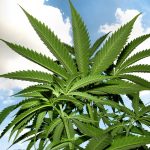Public Demands Cannabis Legalisation, But Government and Big Pharma Have Other Ideas

The overwhelming majority of Australian patients who use cannabis medicines and have come into contact with this country’s medicinal cannabis licensing system – which commenced on 30 October 2016 – will tell you it completely disregards their interests.
The Turnbull government passed a medicinal cannabis legalisation bill in February that year, in response to a loud public campaign. However, two days after its provisions came into effect, then health minister Sussan Ley blocked fast-track access to the medicine for the terminally ill.
Fast forward to September last year, and a fed up Lucy Haslam – one of the most prominent voices in the medicinal cannabis campaign – made her way down to Canberra to raise the issue of patient access, or lack thereof, with federal MPs.
The result is the Current Barriers to Patient Access to Medicinal Cannabis in Australia parliamentary inquiry. But while it’s positive that patient advocate voices are being heard by government, the same players that set up an access system completely bogged down in red tape are still presiding.
Medicinal cannabis is under the oversight of the Therapeutic Goods Administration (TGA). It’s approved over 31,000 prescriptions. However, the conservative estimate is there are around 100,000 Australian patients using cannabis medicines right now.
And despite assertions that Big Pharma is behind blocking access, a well-known medicinal cannabis activist maintains it is solely to do with government.
Grassroots figures
“We have found that the increase in prescriptions does not equate to the number of patients getting medicine,” said Medicinal Cannabis Users’ Association of Australia (MCUA) president Deb Lynch.
The MCUA conducted a survey of cannabis patients, which informed its submission to the parliamentary inquiry into access barriers. The study found that figures relating to the number of TGA cannabis prescriptions have been issued aren’t quite what they seem.
“The survey showed that approvals averaged out at 3 per person, with some people having had up to 10, or more, approvals,” Ms Lynch explained. “So, around 30,000 approvals boils down to around 10,000 patients in four years.”
The results also found that 48 percent of the patients that received scripts weren’t able to afford to get them filled. And Lynch said that black market and self-supply options are still servicing the majority of the ever-growing numbers of patients, which she believes is likely up to a million.
As for the rise in the number of Office of Drug Control granted cannabis cultivation and production licenses – which now stands at 22 – the cannabis advocate explained that it’s “had little to no effect on getting legal medicine to patients”, as most can’t afford it.
“Many of the Aussie companies are being swallowed up by big international players,” Ms Lynch further told Sydney Criminal Lawyers. “Some have had harvests, and products have gone offshore. There are still literally no Aussie products available.”
The issue with what’s on offer
But, the products that Big Pharma are putting out there aren’t satisfying those in need either. You only have to speak to medicinal cannabis patients to find that the pharmaceutical company produced medicines don’t cut it like whole plant medicines.
Most Australian patients that can access legal product are still receiving the imported cannabis, which is a result of federal health minister Greg Hunt launching a fast track medicinal cannabis importation scheme in February 2017 to make up for the lack of local product.
“Imported corporate cannabis is grown indoors under artificial light using unknown methods to control pests and disease,” Ms Lynch made clear. “Plants are then harvested and brutalised into a conforming single cannabinoid substance – either THC or CBD.”
According to Deb, the problem with these pharmaceutical products is they only treat the symptoms of an illness. Whereas homegrown products employ “whole plant extracts” that utilise “every compound in the plant”, and work to heal the body, which then leads symptoms to disappear.
“There is really no comparison when you consider homegrown,” Ms Lynch added. “We have people who have had violent reactions to corporate products and others who have never used homemade oils getting relief.”
Swimming against the tide
But, while there have been concerns raised around Big Pharma benefiting from the convoluted access and production system – along with the plant remaining illegal for the most part in this country – Deb disagrees.
“It’s not so much the corporates, but the government who want to capture the market and be a dominant force in a billion-dollar industry,” she explained, adding that it’s “possibly to replace the ailing poppy industry.”
“Problem is, the current LNP government are prohibitionists at heart and they don’t want people to have access – especially for social adult use.”
As Lynch sees it, the Coalition has bound medicinal cannabis in so much red tape with the aim of stopping “leakage” into the general populace. And with what’s going on elsewhere in the world, Big Pharma are well aware of “the inevitable”, which “is full legalisation of cannabis in this country”.
Nowadays, in the US, medicinal cannabis is legal in 33 states. And while there are pharmaceutical products available, natural botanical medicines are too. And even further than this, cannabis is now completely legal for recreational use in 11 states, plus the District of Columbia.
Cannabis has been completely legalised throughout the entire nation of Canada since October 2018, which makes it the second country to do so after Uruguay. And South Africa’s highest court ruled that home use and cultivation of the plant is legit a year and a half ago.
Pipe dreams
Back in January 2018, health minister Hunt declared Australia was opening up its market to allow for medicinal cannabis exports, which was a fairly bold statement considering the first legally produced Australian cannabis medicines didn’t arrive for another seven months.
Hunt said that by opening up exports it would ensure more local production, which would in turn benefit Australian patients. Indeed, the health minister went as far as to predict that Australia could be “the world’s number one medicinal cannabis supplier”.
But, as Ms Lynch explains, this move has actually seen Australian produced products being sent abroad, while local shelves remain bare.
“Greg Hunt stipulated in 2018 that ‘one of the conditions of any licence for export is that medicinal cannabis be made available to Australian patients first’ – it hasn’t happened,” Lynch insisted.
“The government doesn’t care too much for patient outcomes, its focus is on creating an export industry and becoming a dominant player on the world medical cannabis stage,” she concluded.







